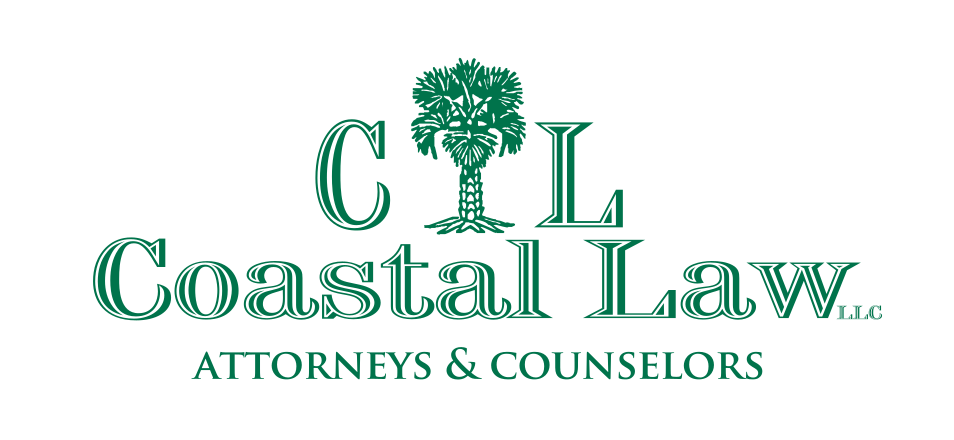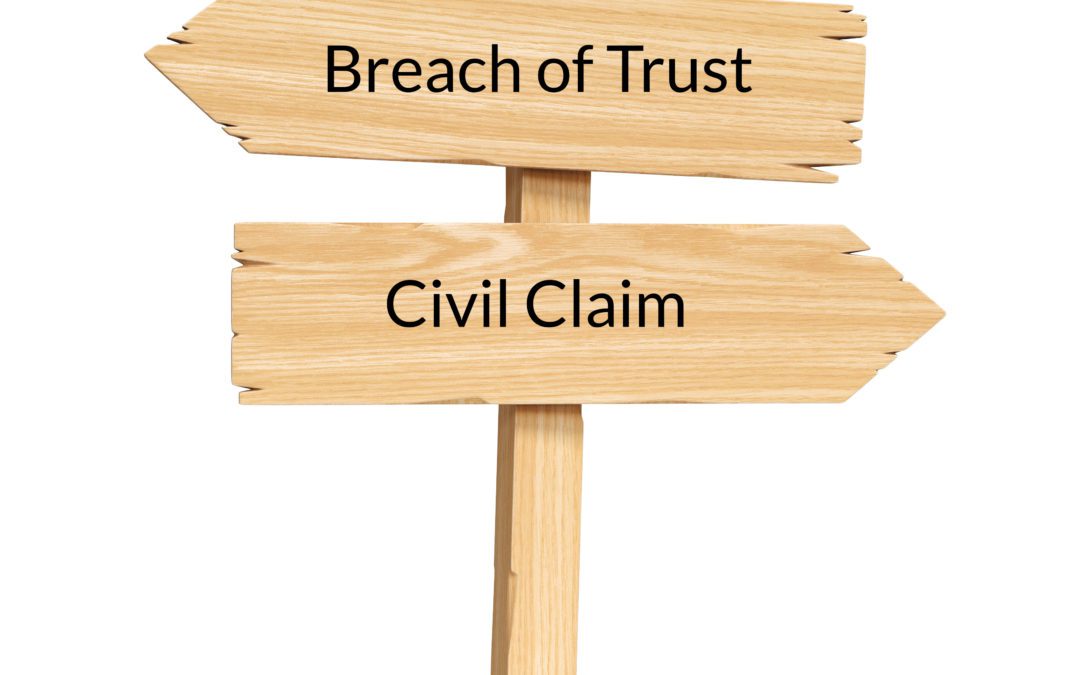What is breach of trust with fraudulent intent?
More importantly, when is breach of trust not breach of trust?
In far too many cases, alleged victims of breach of trust, law enforcement, and, in some cases, prosecutors will have someone arrested and charged with breach of trust when what is really happening is the alleged victim is unhappy with a bad business deal.
What are the elements of breach of trust in SC, and what happens when someone is wrongfully arrested to extort money from them? Is it ethical for an attorney to participate? Can you sue for wrongful arrest when your case is dismissed?
What is Breach of Trust in SC?
Breach of trust is another word for embezzlement in SC. It is a form of larceny – where petit larceny or grand larceny is taking someone else’s property by unlawful means, breach of trust is taking someone else’s property by lawful means.
Before you can be convicted of breach of trust, the State must prove each and every element of the crime beyond any reasonable doubt. Also, before you are arrested and charged with breach of trust, law enforcement should make sure that they have probable cause for each and every element of the crime.
What are the elements of breach of trust charges in SC?
- There is a “trust relationship,” or a “fiduciary relationship,” between you and the alleged victim;
- You take property that belongs to the alleged victim and convert it to your own use;
- The property you took was held in trust for the alleged victim and was supposed to be used for their benefit only; and
- You had fraudulent intent when you took the property.
You could also be charged and convicted of breach of trust if you “hire or counsel” another person to commit a breach of trust.
If there is no probable cause for each of these elements, law enforcement should not have charged you. If the State does not prove each element beyond a reasonable doubt, a jury should acquit you at trial.
What are the Penalties for Breach of Trust in SC?
Breach of trust in SC is a property crime, and the potential penalties are “graduated” based on the dollar value of the funds in question:
- $2000 or less: up to 30 days in jail
- More than $2000 but less than $10,000: up to five years in prison
- $10,000 or more: up to ten years in prison.
There are also potential fines, and the Court will most likely order that you pay restitution to the alleged victim.
Breach of Trust in SC or a Civil Matter?
Is it breach of trust, really? Or is it a civil matter?
Here’s the problem. John calls Roofer Bob and asks him to put a new roof on his house. John pays Roofer Bob upfront . Roofer Bob comes out and does a terrible, awful job. The roof is leaking, the materials Roofer Bob used were not what John was expecting, and, in John’s opinion, Roofer Bob did not do what he was paid to do.
John gave Roofer Bob money. At least part of that money was to be spent on behalf of John to purchase roofing materials. Roofer Bob leaves with the money and John has a leaky roof. That’s not breach of trust – it’s a civil matter, and John may have a lawsuit against Roofer Bob if Roofer Bob doesn’t make it right.
Nevertheless, John is angry, and he wants his money back. Now.
He calls his attorney who handles contracts for his business (but who has never handled a criminal defense case), and the attorney explains that, if John has Roofer Bob arrested, John will get his money back faster because the court will order Roofer Bob to pay restitution as part of the criminal case.
John then calls his friend, Officer Joe at the police department, who is very understanding about how this criminal Roofer Bob has ripped off John.
Officer Joe then goes to the local magistrate, who doesn’t really understand the elements of breach of trust in SC (or care) and who signs the arrest warrant no questions asked. Officer Joe then serves the arrest warrant on Roofer Bob.
Roofer Bob now must pay an attorney to represent him and is looking at potential prison time if he is convicted. On the other hand, the prosecutor may agree to dismiss the case, to pre-trial intervention (which would shut down any lawsuit Roofer Bob tries to file later), or to a probationary sentence, but only if Roofer Bob pays the restitution and makes John happy.
The problem is there was never probable cause to arrest Roofer Bob for breach of trust – Roofer Bob did not steal money that he was holding in trust for John, and there was no fraudulent intent.
SC Rules of Professional Conduct
Can an attorney who works in the solicitor’s office prosecute a case like Roofer Bob’s?
Often, when an ethical solicitor sees a case like this, they will dismiss it immediately. Other times, they will go forward with the prosecution or insist that the defendant pay restitution. Can they do that?
No.
Rule 4.5 of the SC Rules of Professional Conduct says that “A lawyer shall not present, participate in presenting, or threaten to present criminal or professional disciplinary charges solely to obtain an advantage in a civil matter.”
This means that John’s business law attorney is violating the ethics rules if he takes the case to law enforcement or the solicitor’s office. It also means that the solicitor on the case is violating the ethics rules if they go forward with the prosecution or insist on restitution before dismissing the charges…
Wrongful Arrest and Abuse of Process
What’s the remedy?
If you were arrested and charged with breach of trust in SC because someone was unhappy about a bad business deal, or because someone is trying to extort money from you, you may have a civil lawsuit against the alleged victim, the police officer who signed the warrant, and, in extremely rare cases, even against the prosecutor.
The key is whether there was probable cause for the charges. If there was no probable cause for the charges and they arrested you and tried to extort money from you anyway, there could be multiple causes of action including:
- Wrongful arrest,
- Malicious prosecution,
- Abuse of process (using the court system for an unlawful purpose),
- Assault and battery (if police handcuffed you and took you to jail),
- Causes of action under the State Tort Claims Act, and
- A 1983 action for violation of your civil rights.
Do you have a case?
It’s impossible to say for sure until we have reviewed all evidence in your criminal case and the charges have been dismissed.
Your criminal defense attorney at Coastal Law will get the evidence that we need to get your criminal charges dismissed whenever possible, and we will preserve any evidence that you may need to later pursue a civil case.
Criminal Defense Lawyers in Myrtle Beach, SC
If you have been charged with breach of trust in South Carolina, your attorney at Coastal Law will do everything that is legally and ethically within our power to get your case dismissed or to win your case at trial.
If your charges are dismissed due to a lack of probable cause, you may have a civil cause of action, and Coastal Law will help you to pursue it or refer you to the right attorney who can help.
Call Coastal Law now to schedule a free case consultation by calling (843) 488-5000 or by contacting us through our website.


